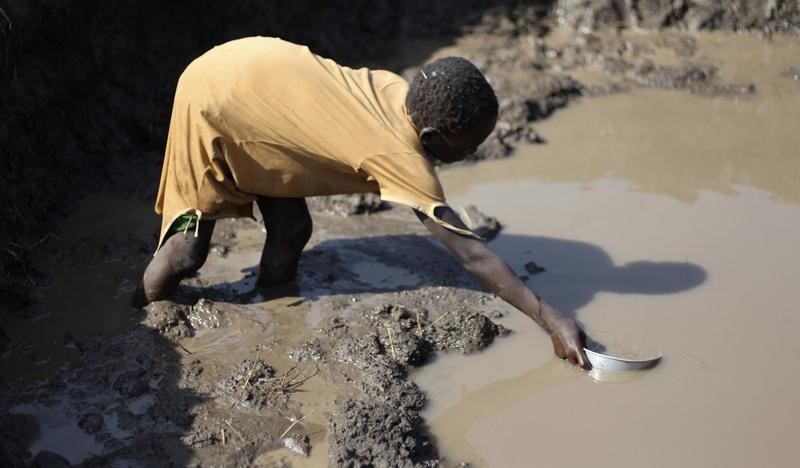NAIROBI (Reuters) - The United Nations said on Monday it had begun delivering food aid to war-torn South Sudan via the Nile River from Sudan for the first time since it became independent in 2011, warning the country could face a "hunger catastrophe".
The corridor, through an area of high military activity, will reduce reliance on expensive airplane and helicopter deliveries, which cost six to seven times as much as river and road transport, according to the World Food Programme (WFP).
"The threat of a hunger catastrophe remains very real in early 2015 as the dry season takes hold," said Stephen Kearney, WFP's acting country director. "This will make an enormous difference in our efforts to bring food assistance to people in critical need."
The border between Sudan and Sudan Sudan has been heavily militarised since Juba declared independence from Khartoum three years ago, cutting off nearly all cross-border commercial and humanitarian traffic along the Nile. The route was opened only after extensive negotiations between the two countries, WFP said.
WFP said it had completed thousands of flights over the last year carrying food and nutrition supplies to some 2.5 million people isolated by conflict and bad roads, which become impassable during rainy seasons.
Fierce fighting erupted in South Sudan last December, two years after Juba declared independence from Khartoum. The United Nations says the conflict has killed more than 10,000 people and driven the country of 11 million towards famine.
The warring parties re-committed to stop fighting and bring their conflict to an end without conditions in November, but sporadic bouts of fighting resumed soon afterwards.
In the cross-border operation, WFP is using trucks and river barges to deliver an initial total of 4,650 tonnes of food for South Sudanese affected by conflict as well as for refugees living in camps in Maban County of Upper Nile state.

WFP said it hoped to use the re-opened corridor to transport an additional 21,000 tonnes of food into South Sudan contributed by the United States, which was recently unloaded in Port Sudan in the Republic of Sudan.
(Reporting by Edith Honan; editing by Drazen Jorgic and Ralph Boulton)